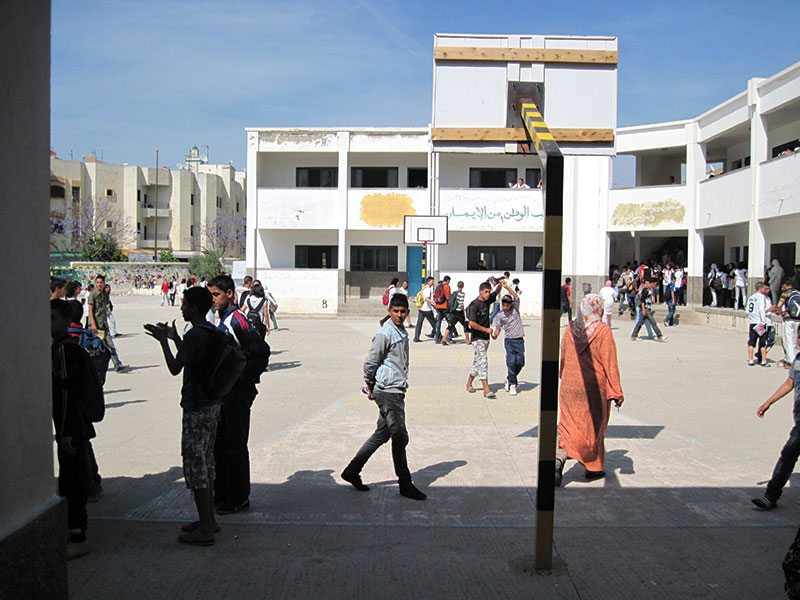[vc_row][vc_column width=”1/1″][vc_column_text]
MOROCCO:
Keeping Teens in School
[/vc_column_text][/vc_column][/vc_row][vc_row][vc_column width=”2/3″][vc_column_text] Some challenges transcend borders; undoubtedly though, solutions start locally, from within. Moroccans are currently experiencing a fourteen percent middle school dropout rate. A limited education for these youth often jeopardizes their future, resulting in long periods of unemployment which in turn make them vulnerable to exploitation by criminal or violent groups.
Some challenges transcend borders; undoubtedly though, solutions start locally, from within. Moroccans are currently experiencing a fourteen percent middle school dropout rate. A limited education for these youth often jeopardizes their future, resulting in long periods of unemployment which in turn make them vulnerable to exploitation by criminal or violent groups.
USAID has partnered with Morocco’s Ministry of Education to address this challenge by modernizing teaching methods all over the country. With assistance from USAID education experts, the Ministry of Education has modernized teacher training materials, equipping teachers with strategies to help students excel academically and stay in school. More than 300 teacher trainers are using the new methods and materials introduced by USAID during the 2011-2012 academic year; they have reached nearly 2,500 trainee-teachers.
Morocco’s professional teacher trainers welcome this initiative because it gives them a way to help teachers address real problems they experience in the classroom. Mohamed Ouilali, a trainer based in Marrakesh, noted that, “USAID is very effective in raising the quality of teacher training in Morocco. The drop-out problem is real in this country. USAID’s collaboration with the Moroccan Ministry of Education is undeniably important and comes at the right time to meet this challenge in the changing educational context in the country.”
Dissimulated through Morocco’s teacher training institutes, the teaching emphasis has shifted to include: strengthening critical thinking, responding to student apathy, and addressing remedial learning needs. Additionally, management training for school directors ensures efficient and transparent use of school resources.
As a result of applying USAID’s training in effective instruction, Mr. Abdelkarim Choklate, an art trainer based in the Tangiers teacher training center, declared: “Thanks to USAID, teacher trainees experienced ways of teaching which are the opposite of what their students are accustomed to in the past. They now give more importance to flexible time management and to group activities which enliven students and provide an opportunity for peer to peer learning.”[/vc_column_text][/vc_column][vc_column width=”1/12″][/vc_column][vc_column width=”1/4″][vc_widget_sidebar sidebar_id=”sidebar-primary”][/vc_column][/vc_row]